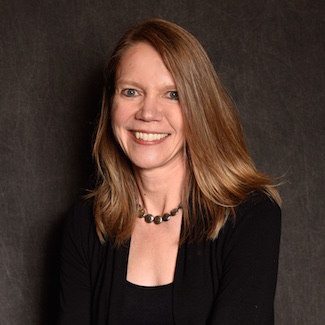
If stage presence could be described as high-definition, multichannel, and immersive, that’s the version that Deb Britton is running. On stage and off, she is what she jokingly describes as a “control freak” on a quest to tune and adjust an audience’s experience of sound. But as those who know her work would attest, her sonic expectations are justifiable evidence of a trained musician’s ear filtered by some serious acoustics and engineering chops.
Britton’s rockstar-turned-systems-designer origin story may have similar plot points to others in the industry, but her contributions are unique in that they extend beyond projects into widely influential progress. Discovering the field of acoustical design during her music production and engineering undergraduate studies at Berklee College of Music, she landed a job at a consulting firm before she graduated, and upon receiving her degree, returned to the school to co-teach the course that introduced her to the subject. Along the way, she also picked up an engineering degree from Northeastern and later capped it off with a master’s in DSP and communications after relocating to Boulder, CO.
Her always-advancing understanding of the technologies that deliver and improve the audience experience is an extension of both her passion for musical performance and her scientific exploration of how technology can or cannot make a room sound better. “A good audio system can’t fix bad acoustics,” she observes, describing the mix of sonic conditions she has experienced as a performer. “A lot of times, venues don’t put effort into improving sound. In general, there is a ‘just good enough’ mentality. But there’s always hope. We in the industry have to continue to evangelize. We need to emphasize to clients that if a space is intended for communication, it is important to make the effort to ensure that people are going to hear and see.”
Those in the industry also need to keep apace of the ever-increasing number of technological elements that factor into a successful AV design, but Britton has long worked at the forefront of that evolution. After establishing her career at major consulting firms on the east coast and later in Boulder, CO, she became a founding member of the systems design team at Peak Audio, the consulting and engineering firm that brought the world CobraNet. Then, following Peak Audio’s acquisition by Cirrus Logic, she co-launched K2 Audio, an AV consulting firm with an engineering division that actively demonstrates the reality of convergence with its emphasis on programming and high-level DSP consultation work.
“Convergence is here,” Britton concluded. “If you’re not designing systems that are living on a network, then you’re designing systems that are outdated when they hit the street,” Britton asserted. “It feels like a rollercoaster sometimes, but we all seek out rollercoasters, don’t we? It’s a thrill.”
Kirsten Nelson is editor-at-large of SCN. Follow her on Twitter @kirstennelson.
